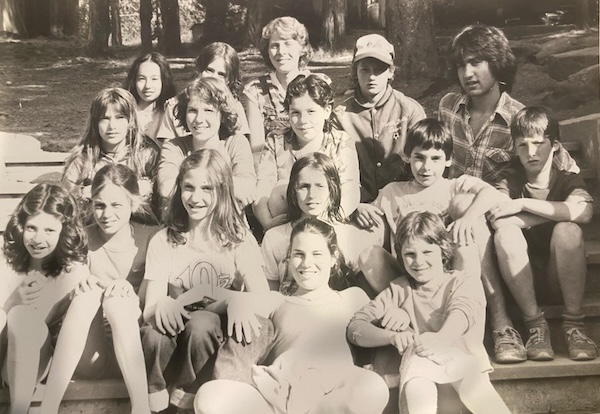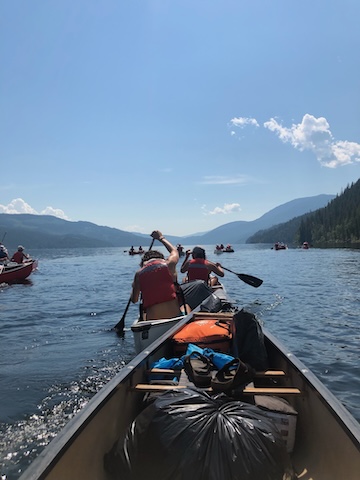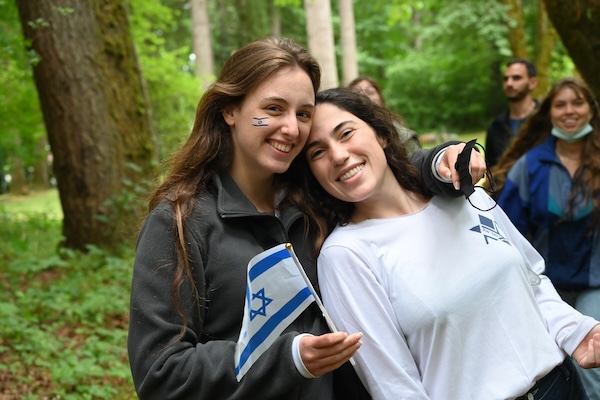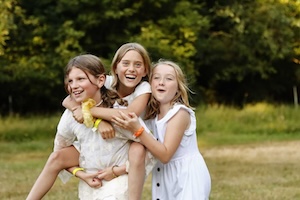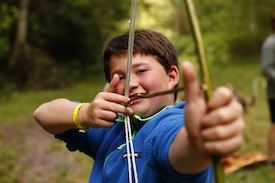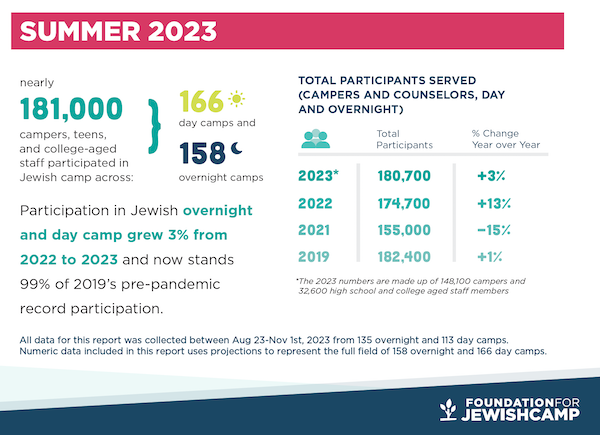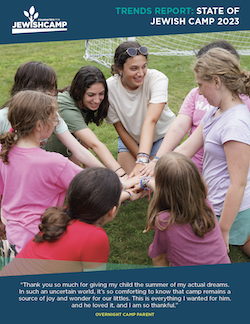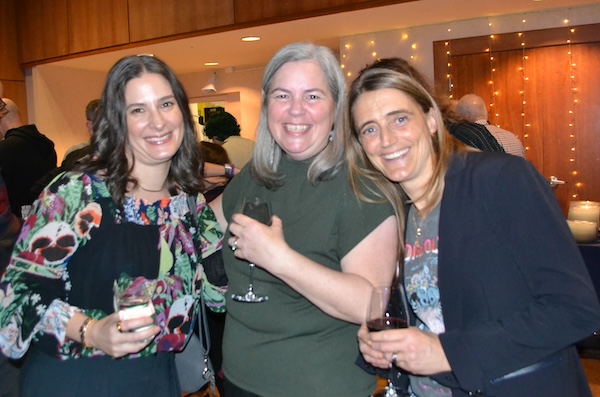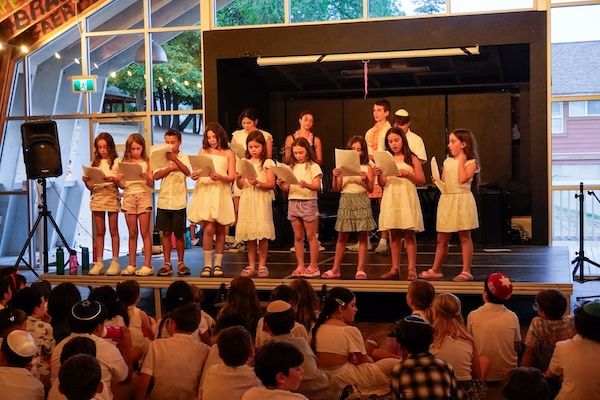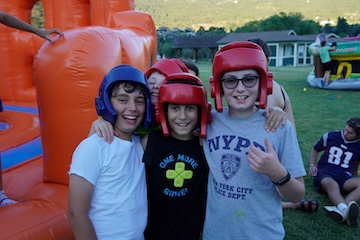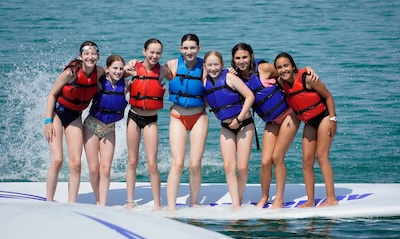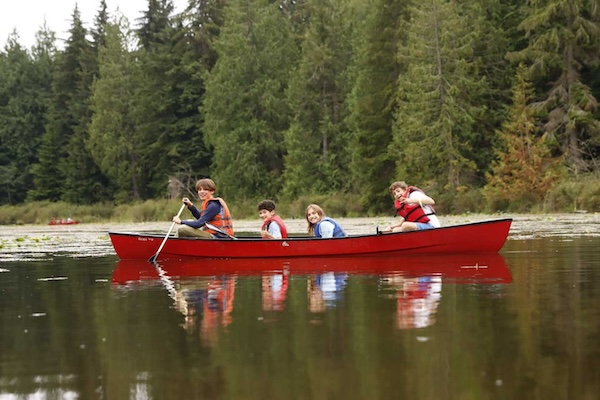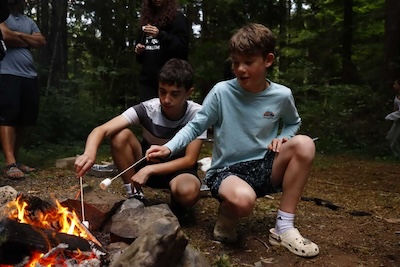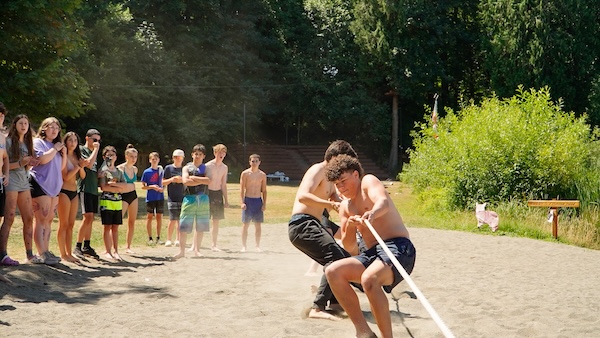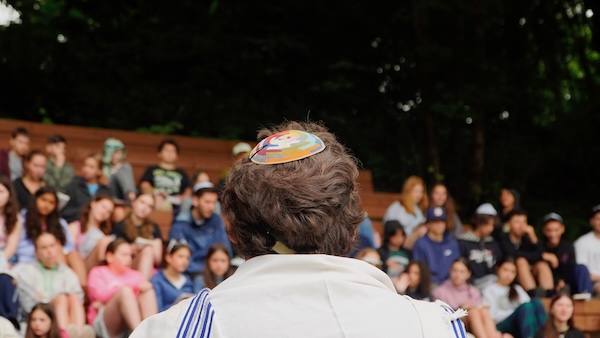Selina Robinson (centre front) was a counselor at Camp Miriam for four summers. She is pictured here, in 1981, with the Sayarim (Grade 5s) in that year’s first session. (photo from Camp Miriam)
Little did I know how much Camp Miriam would teach me about leadership, standing up for others and how to be the “Jew in the Crew” in the face of antisemitism.
I never had the opportunity to go to Camp Miriam as a chanicha (camper) and wish that I had had that opportunity. I am grateful however that, when I was 17, a fresh-faced graduate of Richmond High School, I got hired for the summer of 1981 to be a madricha (counselor).
I had no idea what I was getting into, but, within days, I realized that I had been missing regular contact with a Jewish community. Back in 1981, there were only four Jewish students in our school of 1,200. But Camp Miriam was much more than being in an environment where I didn’t have to explain myself, my traditions, my values. It was an environment that encouraged me to explore how I wanted to be Jewish. Learning about Israeli culture and history in a place that values debate and discussion taught me that all perspectives have value. I learned how to consider various perspectives, how to be respectful in debate and how to articulate my arguments.
Joining the tsevet (staff) was a tremendous opportunity to learn and refine so many leadership skills, setting a personal example, making sure that all members of the group are equally engaged and even how to chair a meeting with more than 100 campers (yes, it is possible to chair a meeting with more than 100 children).
Camp Miriam helped me understand not just the importance of social responsibility but how to put these ideas into practice. I got to see these ideals in action and see why they are important, and then to talk with the chanichimot (campers) about why we have these values and what they mean to us as Jews and as human beings who are responsible for one another. Whether we were cleaning the sherutim (bathrooms) or painting the rocks around the mifkad (flagpole), it was always with purpose and understanding that we were taking responsibility for our home.
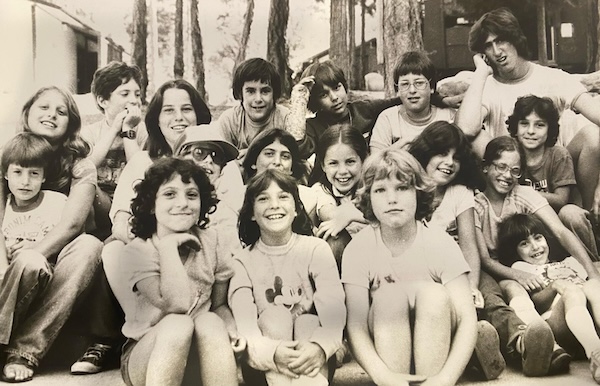
I worked at Camp Miriam over four summers and, as I reflect on my time there, I am struck by how those four summers impacted my life as I got my post-secondary degrees, worked in the social services sector, started a private practice and eventually moved on to politics. In every leap, my experiences at Camp Miriam were there with me: the importance of caring for others who might be down on their luck, the role of personal responsibility in decision-making and how to make collective decisions.
As a Coquitlam city councilor from 2008 to 2011, I put these collective decision-making skills into practice often. I listened to my colleagues around the council table present their arguments and determined if I agreed or disagreed with the direction they wanted to go – it was just like an asefa (meeting) that a kvutsa (group) might have about how to spend their kupa (collective pot of money). It was in these meetings with 11- and 12-year-olds that I learned how important it was that everyone have an opportunity to have their say so that we could make the best decisions for the collective. I was able to carry this experience with me into my political life.
When I became BC minister of finance in 2020, I received a note from Leah Levi, Camp Miriam’s registrar at the time. She sent me a note of congratulations and included “make good decisions with the kupa.” I had a good chuckle, realizing that is exactly what I was responsible for, our province’s kupa, making spending decisions with the Treasury Board and the cabinet. Little did I know that my four years at Camp Miriam would come in handy as I managed our province’s finances as we navigated through a global pandemic.
Upon reflection, I believe that my ability to sit around a cabinet or council table and make collective decisions, my appreciation of the responsibility for managing the province’s kupa, and even my decision to walk away from government inaction as antisemitism continued to raise its ugly head, all stem from how Camp Miriam helped me understand what it means to be a proud Jew and what it takes to be an effective leader. Camp Miriam helped me to be the person that I am today and for that I am eternally grateful.
To learn more about Camp Miriam, visit campmiriam.org.
Selina Robinson was the MLA for Coquitlam-Maillardville from 2013-2024 and a BC NDP cabinet minister from 2017 to 2024. She was fired from cabinet and left the BC NDP in early 2024. She wrote a memoir about her experiences, Truth Be Told, which is available on Amazon. For more information, visit selinarobinson.ca.

